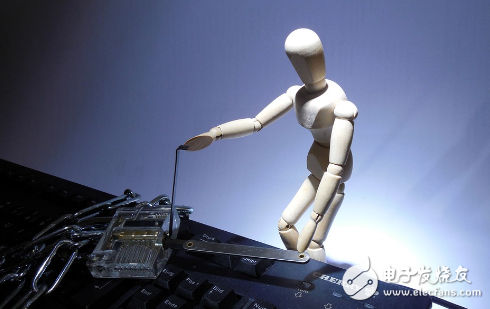
Privacy statement: Your privacy is very important to Us. Our company promises not to disclose your personal information to any external company with out your explicit permission.
In the digital world, we need to constantly weigh the benefits of trusting IoT products and the risk of revealing personal data.
In the age of the Internet of Things, can we protect privacy? First let us compare privacy and online privacy and trust in everyday life, understand their evolution, and then explore how IoT privacy connections and mobile data are used.

Privacy is a very personal matter. Think about it: We often share more information with people we trust. The risk tolerance that I share personal information in my daily life may be completely different from yours, and my tolerance may change over time.
This kind of data sharing based on "user-defined restrictions" usually reveals personal information, history, thoughts and feelings, and is usually related to the personal trust and privacy settings of the system (others), the privacy and trust of the applications and devices we use. It also changes over time. When Facebook asked us to use privacy settings to protect our data, we defined new restrictions on displaying this data and believed that Facebook would continue to protect the data.
The evolution of privacy and trust
Privacy and trust are factors in our legal and social norms. In the 1980s, we lived a very private life. Although the police can check someone's name, address, phone number and license, our personal information is not widely available to the public. Today, our data may become a commodity for marketers, a vote for politicians, or a statistic for data scientists.
The relevant privacy laws protect our personally identifiable information (PII) for good reason, as our personal data is relevant to our identity, finances and more. For example, on the Internet, PII is closely related to photos, life events, bank balances, property records, credit history, resumes, health status, family members, friends, schools, hobbies, and politics.
Over time, our tolerance for using data trust sites has changed. In an open society like ours, online trust will pay off, Craigslist and online dating will bring strangers into our lives, and Airbnb and Couchsurfing will bring strangers into our homes. Openness to strangers is becoming normalized, especially for our young people.
Even so, no matter what our needs are, we must constantly measure the benefits of trusting others and the risk of leaking our private data.
Bringing privacy to the Internet of Things
Similar to personal relationships, the level of trust determines how we control privacy in the IoT environment. As IoT devices become more connected, more data will be shared between people, companies, governments, and ecosystems.
Sensors, devices, data, machines, and cloud connections rely heavily on established trust relationships. Connecting more types of IoT devices (equivalent to adding intrusion points) increases the threat of a given system, increasing the overall security risk. Without the ability to restrict privacy settings, it is difficult to establish a trust relationship with an IoT system or device.
Many manufacturers want to accelerate the adoption of IoT products, but security is often the challenge they face. Many IoT devices continue to pose security risks if there are no automatic security updates, two-factor authentication, or laws that promote security.
Mobile phone is a tracking device
Let's think of the phone as a tracking device that tracks our location and verifies our identity and password through two-factor authentication. Mobile tracking provides us with real-time benefits such as:
◆ Report traffic conditions to avoid the route of the accident
◆Notify that there are friends nearby
◆Notify the coupons of nearby stores
Marketers and mobile phone companies use our real-time location:
◆Provide specific marketing based on our interests
◆Understand the degree of knowledge of different users on companies or events
◆ Provide better mobile signals
Mobile phones are also home intrusion tools
The irony is that because our mobile phone is like a tracking device, hackers can use our mobile location data to steal or hurt us, or at least know our daily routes and lifestyles, for example, if I put one The photos that identify the resort are sent to Facebook, and the thief knows that I am not at home, which is a worry.
Many IoT devices are digitally connected to mobile phones, that is, they often share data and access through the mobile device itself. For example, smart home IoT products have an alarm system that can be accessed remotely via a smartphone app, and thieves can exploit these thieves. The data comes to know exactly that residents can break into their homes when they leave.
to sum up
In the Internet of Things era, we need to constantly weigh the benefits of trusting IoT products (such as sensors, devices, and machines) and the risk of leaking private data. In the digital world, when data is publicly released, we have little control over who will access the data or for what purpose.
Tpu Screen Protector,TPU Film Sheets,Phone Use Tpu Screen Protector,Tpu Phone Screen Protector
May 15, 2024
March 02, 2024
March 02, 2024
Contactar proveedor
May 15, 2024
March 02, 2024
March 02, 2024

Privacy statement: Your privacy is very important to Us. Our company promises not to disclose your personal information to any external company with out your explicit permission.

Fill in more information so that we can get in touch with you faster
Privacy statement: Your privacy is very important to Us. Our company promises not to disclose your personal information to any external company with out your explicit permission.